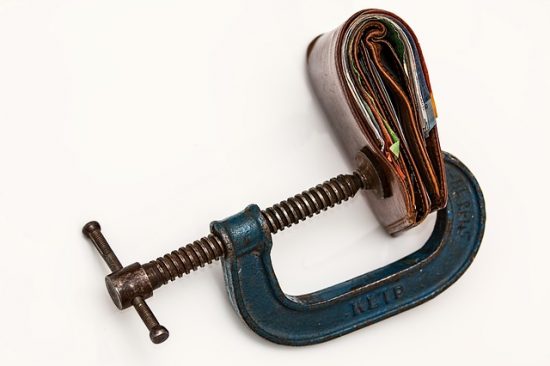Personal finance is fairly broad, and probably has a different definition depending on who you ask. To many, personal finance is using money as a tool for getting where you want to go”. To others it touches on most of the facets that make up the term, including budgeting, saving, investing and retirement planning.
Personal finance refers to the management of an individual’s financial resources, including income, expenses, savings, investments, and debt. It is important because it allows individuals to achieve their financial goals, both in the short-term and long-term.
Here are some reasons why personal finance is so important:
- Achieving financial goals: Personal finance helps individuals achieve their financial goals, such as saving for retirement, buying a home, or paying for education.
- Budgeting and managing expenses: Personal finance helps individuals manage their expenses and create a budget to ensure that they are living within their means.
- Building wealth: Personal finance helps individuals build wealth over time by investing in stocks, bonds, and other financial instruments.
- Managing debt: Personal finance helps individuals manage their debt, including credit card debt, student loans, and mortgages.
- Protecting assets: Personal finance helps individuals protect their assets, including their homes, cars, and other valuable possessions, by purchasing insurance.
- Planning for emergencies: Personal finance helps individuals plan for emergencies, such as job loss or unexpected medical expenses, by creating an emergency fund.
- Improving financial literacy: Personal finance helps individuals improve their financial literacy and understanding of financial concepts, such as interest rates, taxes, and investments.
In summary, personal finance is important because it allows individuals to achieve their financial goals, manage their expenses, build wealth, manage debt, protect their assets, plan for emergencies, and improve their financial literacy. By practicing good personal finance habits, individuals can improve their financial security and achieve long-term financial stability.
Having good personal finances is important for a number of reasons. Here are some of the key reasons why:
- Financial security: Good personal finances provide a sense of financial security and stability. When individuals are in control of their finances, they are better prepared to handle unexpected expenses, emergencies, and financial setbacks.
- Achieving financial goals: Good personal finances make it easier for individuals to achieve their financial goals, such as saving for retirement, buying a home, or paying for education.
- Reducing stress: Financial stress can have a negative impact on an individual’s mental and physical health. Good personal finances can reduce financial stress and improve overall well-being.
- Avoiding debt: Good personal finances can help individuals avoid debt and stay out of debt. This can save individuals money in the long run and prevent them from falling into a cycle of debt.
- Building wealth: Good personal finances can help individuals build wealth over time by saving and investing wisely.
- Improving credit score: Good personal finances can lead to a higher credit score, which can make it easier to obtain loans, credit cards, and other financial products with favorable terms and lower interest rates.
- Planning for the future: Good personal finances involve planning for the future, including saving for retirement and creating an estate plan. This can provide peace of mind and ensure that an individual’s wishes are carried out.
In summary, good personal finances are important because they provide financial security, help individuals achieve their financial goals, reduce stress, avoid debt, build wealth, improve credit score, and plan for the future. By practicing good personal finance habits, individuals can improve their financial well-being and achieve long-term financial success.
For the sake of this discussion, we’ll touch on the three main areas listed above. Let’s jump into what personal finance means for you.
Table of Contents
BUDGETING

A budget is essentially a plan for future income and outlays that can be used as a blueprint for spending and saving. Despite the fact that many people in the United States claim to utilize a budget to guide their spending (33%, according to this Gallup poll), the majority of Americans — the other roughly 66% — do not prepare a budget, and even the folks who have a budget in place tend to overspend.
A simple — but very important — key to living within your means is to be fully aware of all of your expenses, and to spend less than you make. A solid, realistic monthly budget will aid in paying bills in a timely manner, have money for the unforeseen events that can and do happen, and ultimately help you achieve your long-term financial benchmarks.
Creating a budget is a fairly easy task: add up your total monthly income, estimate your monthly expenses as accurately as possible (tracking all of the money you spend for one month is helpful here), and calculating the difference.
SAVING

Saving is a vital component of personal finance, but one that has unfortunately become less of the priority when compared to previous generations. Regardless of your specific reason for spending — a worry-free retirement, the down payment to purchase a house, or buying a new vehicle — saving money is the means to help you reach this goal. The best part of saving to reach your goals is that you aren’t burdening your future down with debt, a trap that too many Americans easily fall into.
The odds are that if you’re similar to many Americans, you currently aren’t saving as much as desired. Or even worse, you don’t save anything. The national rate of personal savings has sunk to the lowest point since the Great Depression, it’s safe to say that we as a country have a savings problem — one that has only been exacerbated by the high cost of energy, food, and housing prices.
However, there are ways to successfully save money. Below are three important tips to start saving now:
Make Saving a Priority
The odds that you will actually save money are dramatically increased if you make this a priority. First, think about what goal that you hope to achieve by saving. Next, estimate about how much cash you will need to reach this goal. Finally, put the plan into action by executing it: set a definitive date for when you will reach the preset saving amount, calculate the savings schedule based on the number of smaller time chunks that comprise your timeline (pay periods or months, for example), and be hyper-vigilant about viewing the savings as a mandatory expense — just like monthly bills or food.
Find Money to Save
Most people find that they actually have more expendable income than they think. Useful tips to determine where your extra cash is going include recording all money spent in a week, paying cash for purchases, assess your bills to see where cuts can be made, and prioritize your non-essential expenses (a word of caution: some frills will need to be cut!).
Automate It
With all of the tools and resources available online, this is an area that can be invaluable in your quest to save. Have the desired amount deducted automatically from your main checking account into a savings account on a designated schedule — this takes the work out of saving, and is much more effective because you can set the deductions, and forget about it.
INVESTING
Investing is putting money or capital to an endeavor (in this case the stock market, buying bonds, real estate, etc.) to earn a profit. Investing also can include the amount of time you put into the study of a prospective investment or company since time is money. Investing doesn’t have to be super-complicated!
Read how to start investing in the stock market.
PLANNING FOR RETIREMENT
 It’s never too early to start on constructing a viable, realistic plan for your golden years. Think of it as an extended, long-term version of your monthly budget (with some major differences, of course).
It’s never too early to start on constructing a viable, realistic plan for your golden years. Think of it as an extended, long-term version of your monthly budget (with some major differences, of course).
The first step in planning for retirement entails figuring out when it will actually start. With the dramatic difference between the amount that the average person receives from Social Security benefits contingent on when they retire, it’s vital to perform your due diligence to figure out the best time to exit the work force. Given that there are so many different factors are in play and each situation is unique, consult a retirement calculator to arrive at the best age for your personal situation.
Next, you’ll want to calculate how much cash that will be necessary in order for you to live the lifestyle that is desired. Formulate a plan to help you reach that target (a professional financial adviser is very helpful at this point).
Finally, consider the different options that are available for reaching your retirement nest egg goal. Again, these will vary based on your individual circumstances, but generally speaking the closer you are to retirement age, the more you need to set aside each year — and if investing in stocks or bonds, the more conservative your outlook should ultimately be.
Personal finance is a broad term, but there are some basic principles that most people would include in their definition. Budgeting, saving, and planning for retirement are all crucial components to consider when discussing and setting the course for your own personal finance goals.
 The first year or so when you are growing your business is a time of extreme excitement and extreme uncertainty. When you are building up a business and working hard to acquire clients as well as everything else that comes with a brand new company, you’ve got to make sure that you have your personal finances in order. While you may spend a lot of time focusing on your company’s cash, what can you do to make sure that you are looking after your personal finances when growing a business?
The first year or so when you are growing your business is a time of extreme excitement and extreme uncertainty. When you are building up a business and working hard to acquire clients as well as everything else that comes with a brand new company, you’ve got to make sure that you have your personal finances in order. While you may spend a lot of time focusing on your company’s cash, what can you do to make sure that you are looking after your personal finances when growing a business?
Diversifying Your Efforts
Any business is a gamble and this means that you’ve got to make sure your finances are diversified. Investing, putting money in another side business, or even just putting aside some money can give you some space should there be a problem with the company. It’s a good idea to learn a handful of investment strategies and pick one that you feel comfortable with. The great thing is that when it comes to stocks and shares as well as materials like gold or silver there are numerous investment options out there. With something like gold or silver, the ABC Refinery website can provide you with a lot of substantial knowledge to see if it’s worth your while. It’s also worth getting into the investment game through websites like eToro and using a practice account. Investing is one of those games that can take years and it’s far better for you to get on it now.
Funding Your Own Future

We may feel that if we can prop up our business by putting a few hundred in here and a few hundred in there that we can easily weather the storms but in doing this are we neglecting to provide for our own future? You need to save for retirement even if your income fluctuates from month to month. A perfect starting point would be to open up a Roth IRA and contribute towards this or a Solo 401K account. Both are perfect options for you to keep a lot of your personal finances safe. You have to remember that the business could potentially go under and if it does, you don’t want to be building up your finances from nothing.
The Importance Of Separating Your Personal Finances From The Business Ones
For those just starting out, it is crucial to separate both entities. In a personal sense, it can be confusing if you keep putting your business funds into your personal account but also if something was to happen further down the line, having a business account can minimize your personal liability. But it’s a crucial idea to have this in place, purely from the perspective of paying taxes and managing other business expenses. It could be so easy to get things confused.
It’s vital that we look after our personal finances, especially when we’re investing so much time in growing a company but this is why it’s a solid lesson at the very outset of our entrepreneurial careers to be financially savvy.